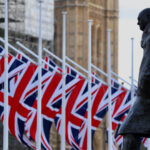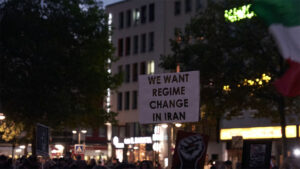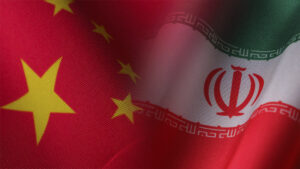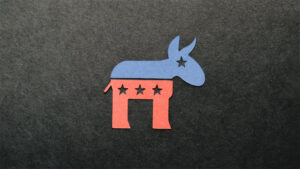Next up on our list of important elections around the globe is the Iranian presidential elections. We’ll be looking at Iran’s new President-elect, Masoud Pezeshkian, and what his victory might mean for the country.
Pezeshkian triumphed over a number of slightly nutty, ultra-conservative, fire-breathing candidates sponsored by the clerical regime (which officially oversees the entire country). This presidential election has also highlighted some of the ongoing issues Iran has faced, especially the economic difficulties caused by US sanctions.
Pezeshkian’s platform follows a more moderate approach than his opponents and predecessors, and suggests a possible shift in domestic policies. As of now, these conversations are focused on smaller issues like the strict enforcement of a dress code for women, but when the majority of the Iranian populace rallies behind something like that…it could mean that something bigger is brewing. It’s far too early to make a call like that, but this is something that I’ll be keeping an eye on.
Here at Zeihan On Geopolitics we select a single charity to sponsor. We have two criteria:
First, we look across the world and use our skill sets to identify where the needs are most acute. Second, we look for an institution with preexisting networks for both materials gathering and aid distribution. That way we know every cent of our donation is not simply going directly to where help is needed most, but our donations serve as a force multiplier for a system already in existence. Then we give what we can.
Today, our chosen charity is a group called Medshare, which provides emergency medical services to communities in need, with a very heavy emphasis on locations facing acute crises. Medshare operates right in the thick of it. Until future notice, every cent we earn from every book we sell in every format through every retailer is going to Medshare’s Ukraine fund.
And then there’s you.
Our newsletters and videologues are not only free, they will always be free. We also will never share your contact information with anyone. All we ask is that if you find one of our releases in any way useful, that you make a donation to Medshare. Over one third of Ukraine’s pre-war population has either been forced from their homes, kidnapped and shipped to Russia, or is trying to survive in occupied lands. This is our way to help who we can. Please, join us.
Transcript
Hey, everybody. Peter Zeihan here, coming to you from a rental car in Kansas City. Today, we are going to take a crack at the second piece in our elections series for the week. We had a number of important elections recently. Today, we’re going to cover Iran, where there was a runaway victory for the now president-elect Masoud Pezeshkian. And I apologize for the name. Anyway, he came in with a strong first place. There’s a two-round voting system in Iran, and it’s not really a surprise that he won.
There were any number of candidates in the first round, but five of them were sponsored by the clerical regime of Iran. You know, the slightly nutty, very ultra-conservative, hate-everyone group that runs the country.
Anyway, there were five candidates from that faction, and they were all fire-breathers. So having one moderate ensured that he made it to the second round, where he easily defeated his opponent, who was honestly a complete nutbag. So no surprise there.
But moving away from the tactical political stuff, the situation Iran is in is uncomfortable.
Dial back a little bit. If you remember back to the war in Iraq, the United States was very good at overthrowing the Saddam regime but not very good at making Iraq look like Wisconsin. So Iranian agents were able to step into the void and agitate the Shia population of Iraq. Shia is a denomination within Islam, and the Iranians are predominantly Shia. It’s also the single largest denomination in Iraq.
Saddam’s government was Sunni. So when the United States basically ripped out the apparatus of the old government and wasn’t quick enough in putting something else in its place, Iran was able to partially take over and still remains very influential there today.
During this period, while the United States was going after militants throughout the region, the Shia Iranians were able to step in, displace a lot of groups, cause a lot of trouble, and become very powerful throughout the region. But it wasn’t free. Iran has a financial restriction in that most of its income comes from oil.
So if you can target the oil, you can target Iran. Over the long term—not just days, weeks, or months, but decades—that really cripples them. Over the past 20 years, yes, Iran made a lot of forays, but it generated a lot of expenses.
When Saudi Arabia was roused to combat Iran, Iran was never going to win a game of checkbook diplomacy with a country that exports a fifth as much oil. Then under Obama, the United States put some of the strictest sanctions ever developed against Iran to pressure them into a nuclear deal to curb their nuclear ambitions. Under Donald Trump, who did away with the deal but kept the sanctions in place, these sanctions have now been in place for the better part of the last decade. We are seeing very real impacts on the standard of living in Iran because they haven’t been able to export the volume of oil necessary to sustain a meaningful standard of living within Iran, much less cause trouble throughout the region.
I don’t mean to suggest that Iran’s been curtailed or castrated, but they’re having a hard time doing everything they thought they would be able to do. When you have this sort of economic blindness, you can follow one of two paths. A few years ago, they tried electing a hardliner named Raisi, who everybody hated. He was a mean dude, and even within the clerical establishment, people thought he was too tough. Then he died in a plane crash a few weeks ago.
The new guy, Masoud Pezeshkian, is basically trying the other approach—maybe a little bit of compromise, maybe a more constructive relationship with the West. Now, I don’t want anyone to get too overexcited here. Yes, elections matter in Iran, but only within a certain framework. The most powerful person in Iran is not the president; it is the supreme leader, who remains a bag of snakes and is responsible for all the things you think of when you think of Iran: the clerical theocracy, the oppression of minorities and women, and the general seeding of militant groups throughout the Middle East. None of that has changed.
The new guy is not challenging much of that at all. In foreign policy, he has stated that he still supports Iran having a nuclear program and a hard line in negotiations with the West. He still supports the Houthis in their on-again, off-again conflict with Israel and Hamas against Israel. He still supports militancy throughout the region, but he’s doing it with a much different tone that suggests there might be a little room for compromise here or there. Don’t count your chickens before they hatch, but there’s at least a change in mood.
If there is going to be a meaningful difference, it will happen at home. Pezeshkian has been very clear that he thinks the clerical authorities’ law enforcement arm shouldn’t beat women if they show their hair. From a geopolitical point of view, that’s kind of a nothing burger under normal circumstances. But now you have the majority of the population of Iran siding with the president against the people with the guns. That can go in a lot of interesting directions. Keep in mind that you’ve got 10,000 clerics, 10,000 mullahs, that basically rule Iran. It’s a deep bench. I’m not suggesting we’re going to have a revolution, but if the guy who’s nominally at the top, chosen by the people, wants a different approach to living your life in the country, and the people who have been calling the shots up to this point are on the opposite side of that, well, things can get very interesting.
So I don’t want to overplay this. I’m not suggesting a revolution, but for the first time in 40 years, there seems to be a split within the leadership of Iran on what Iran should be at home. And that’s how change starts.
Okay, that’s it for Iran. Tomorrow we’ll deal with France.








